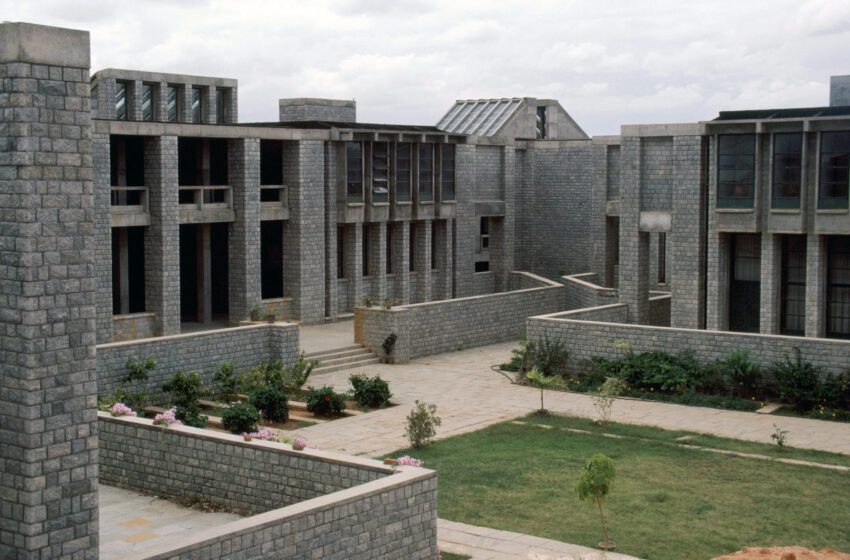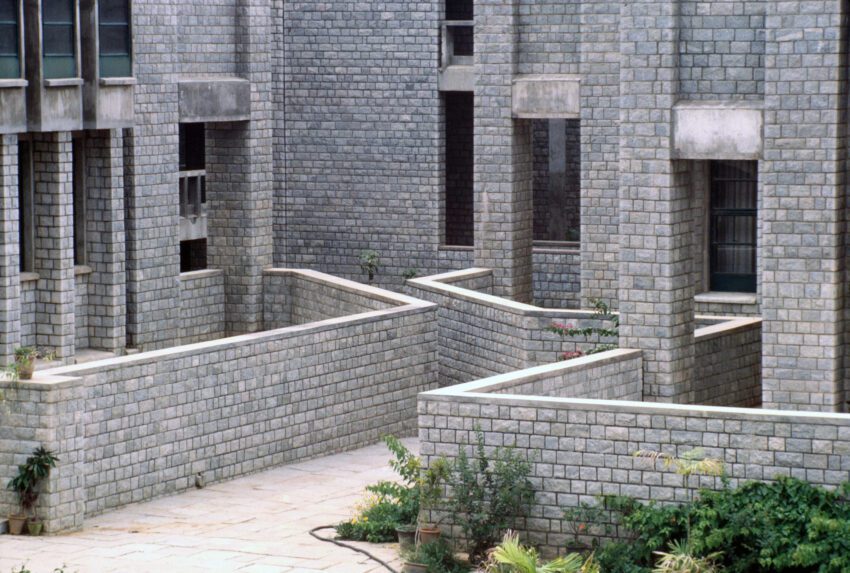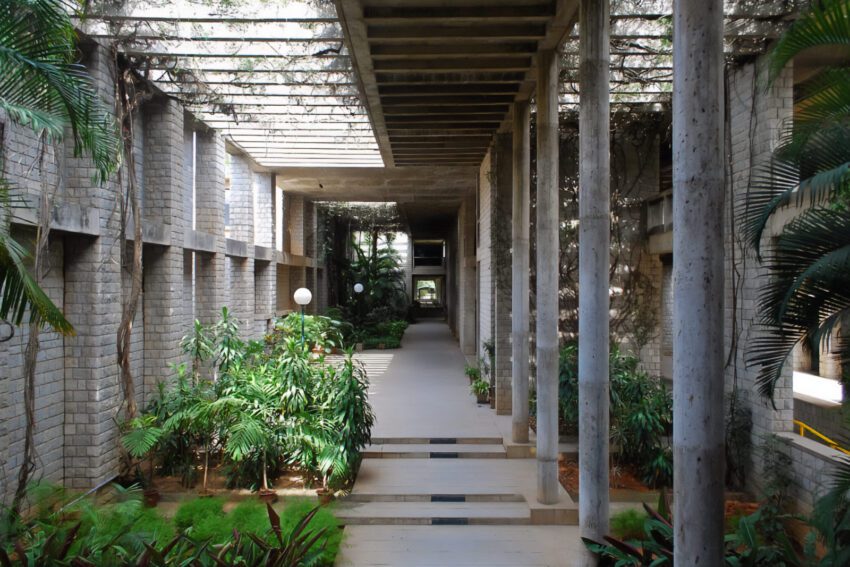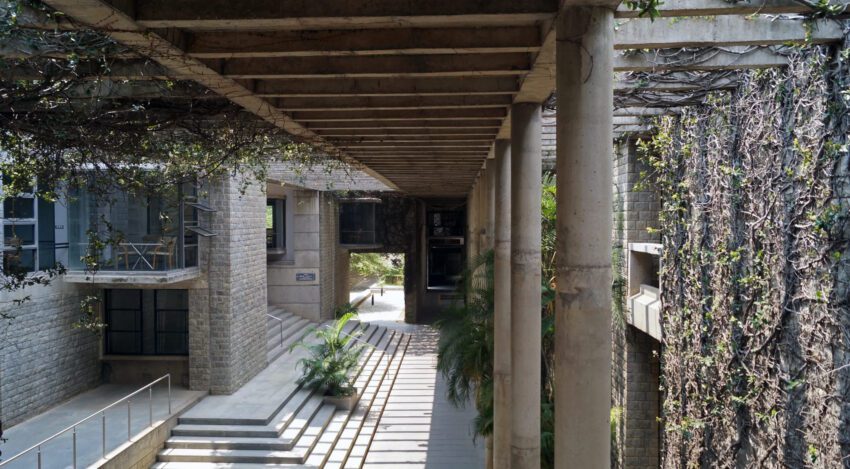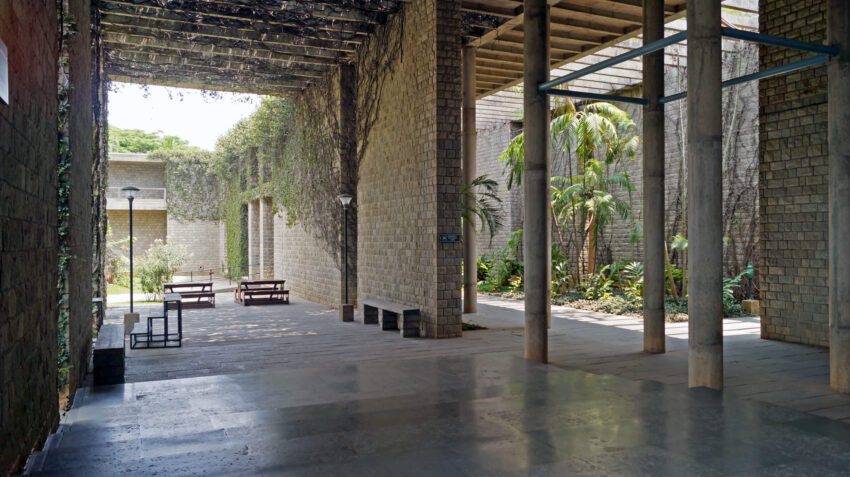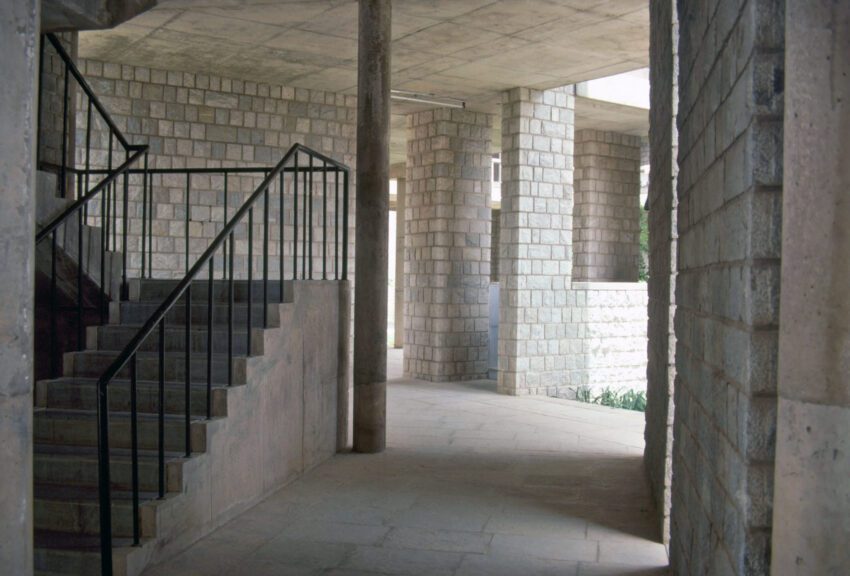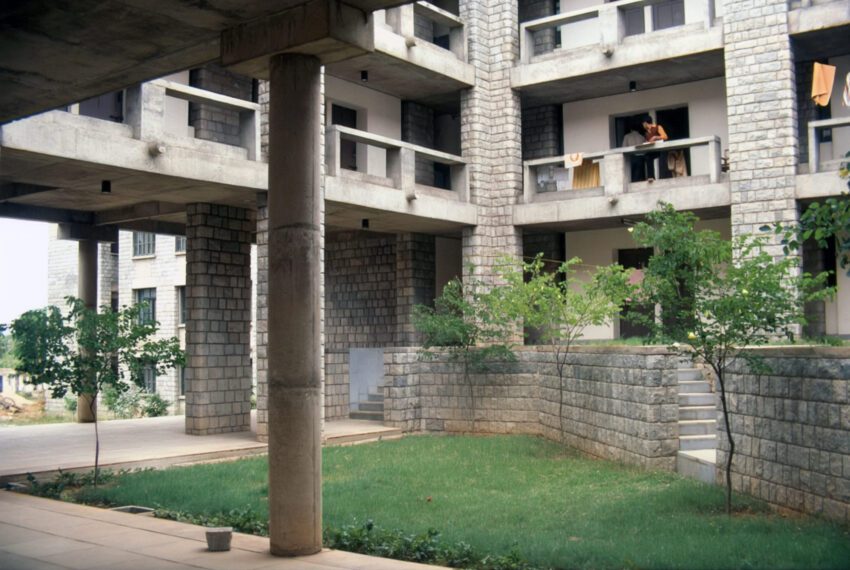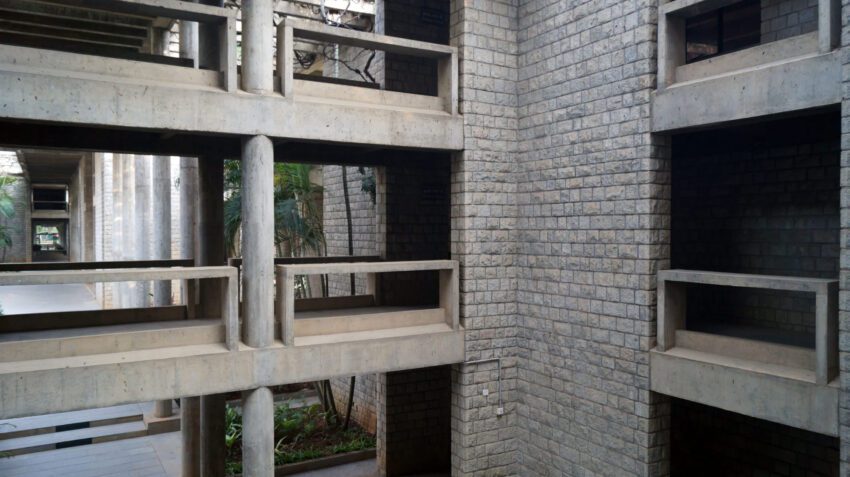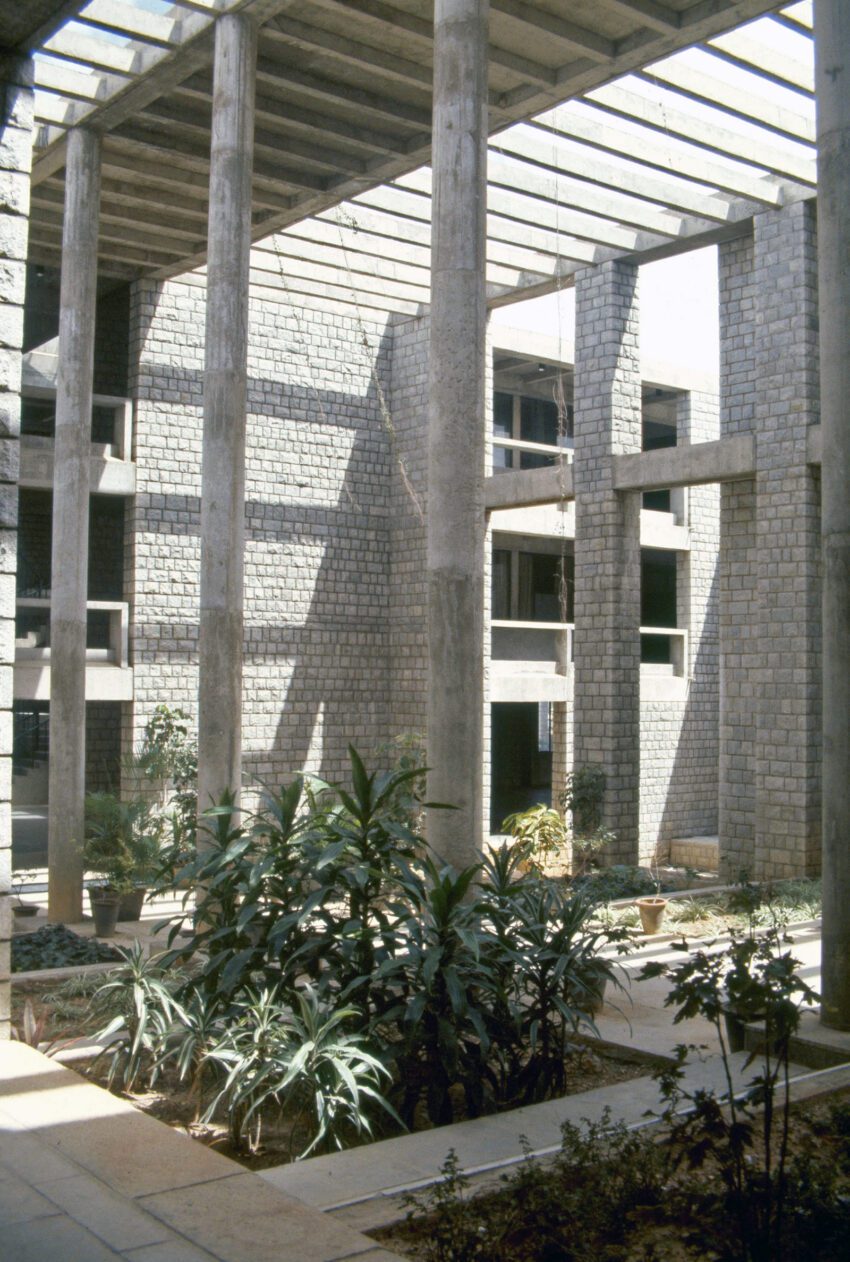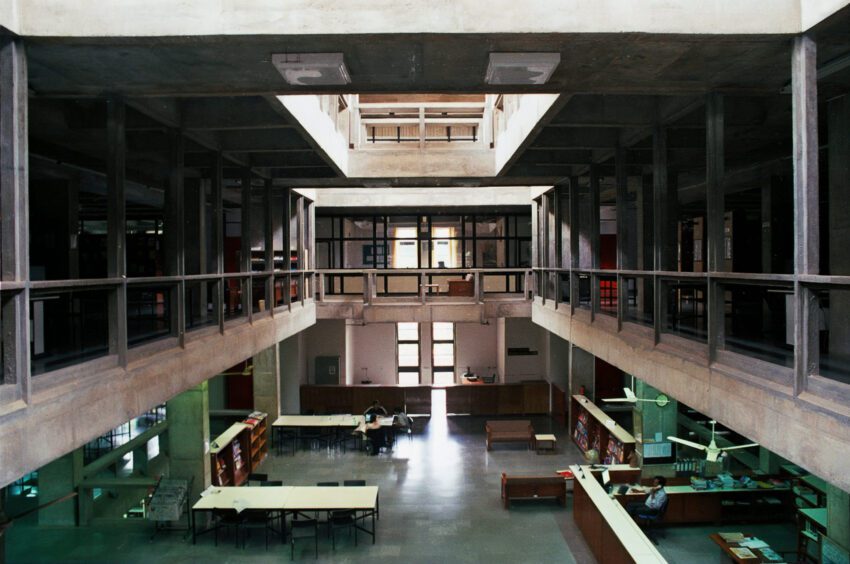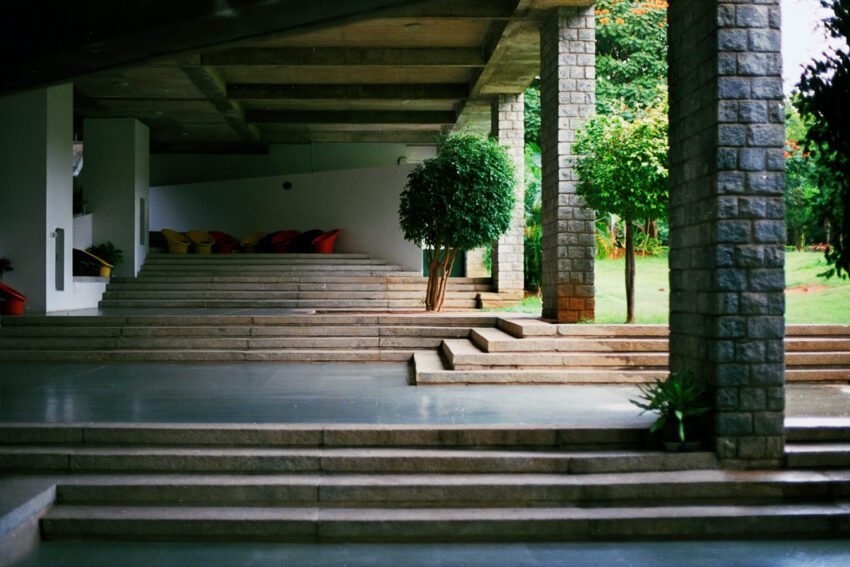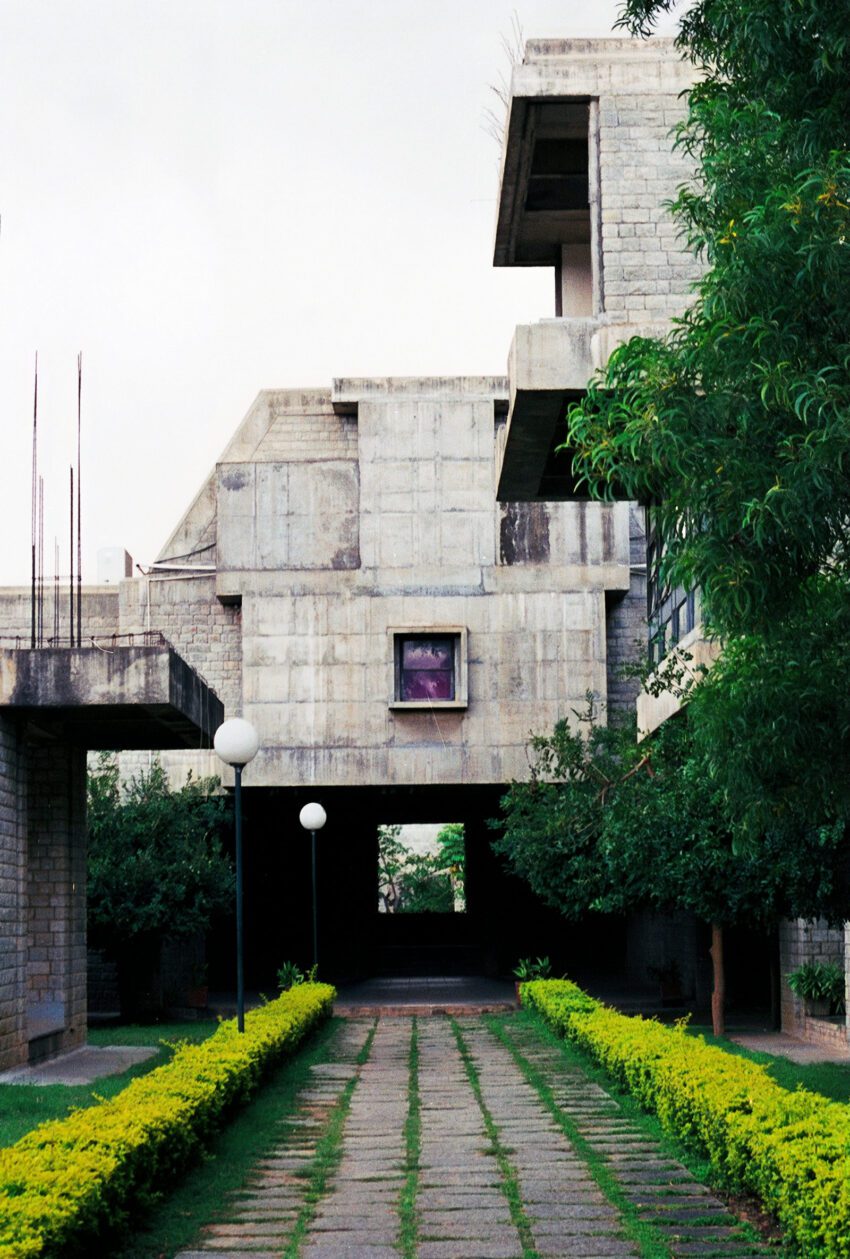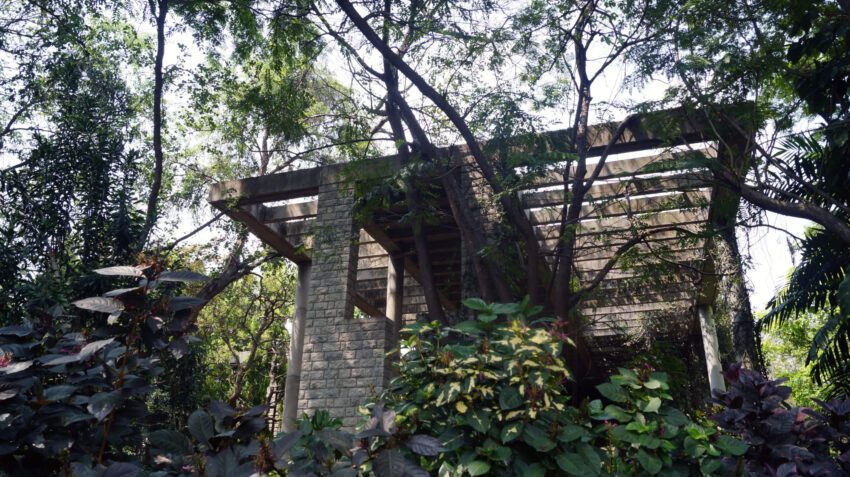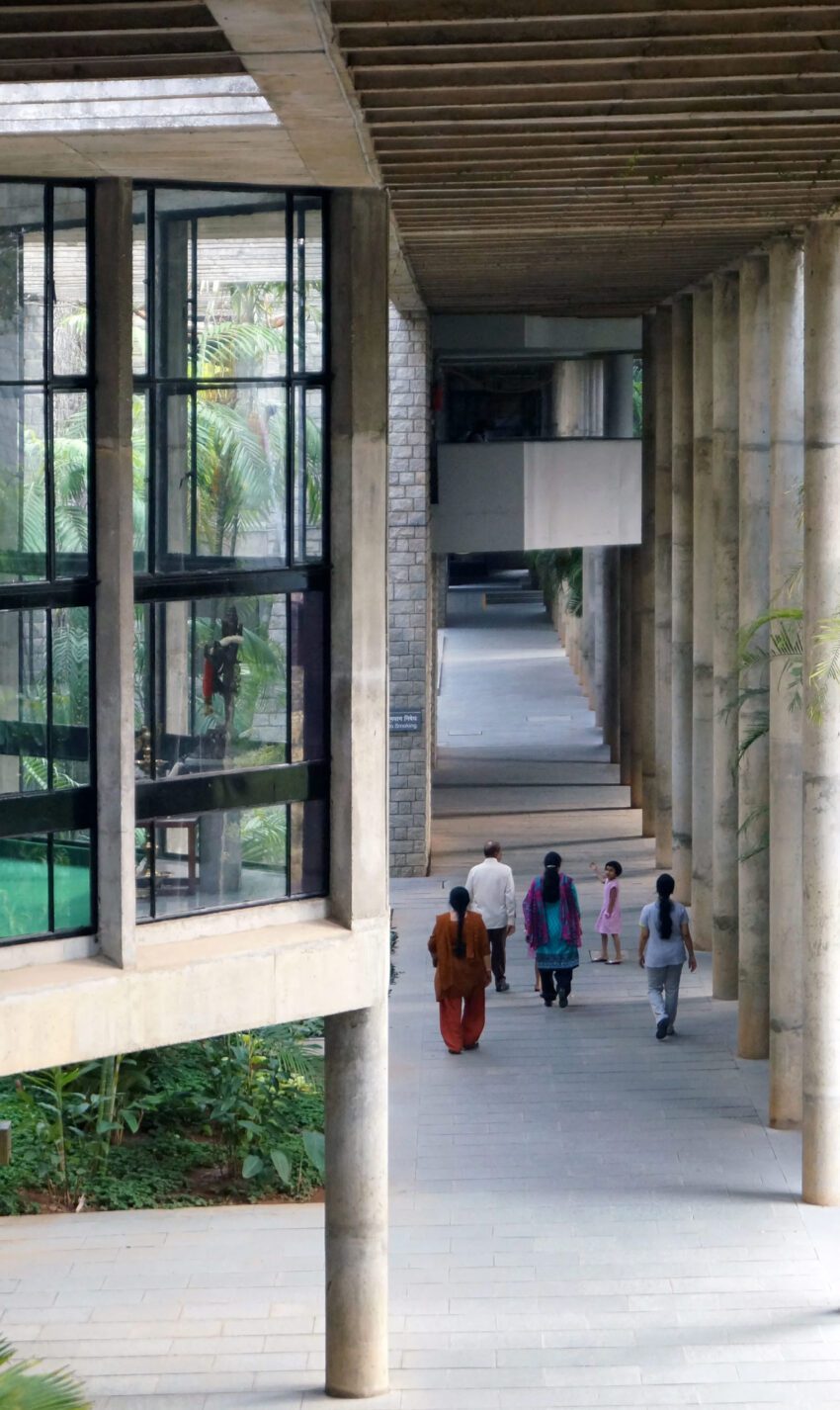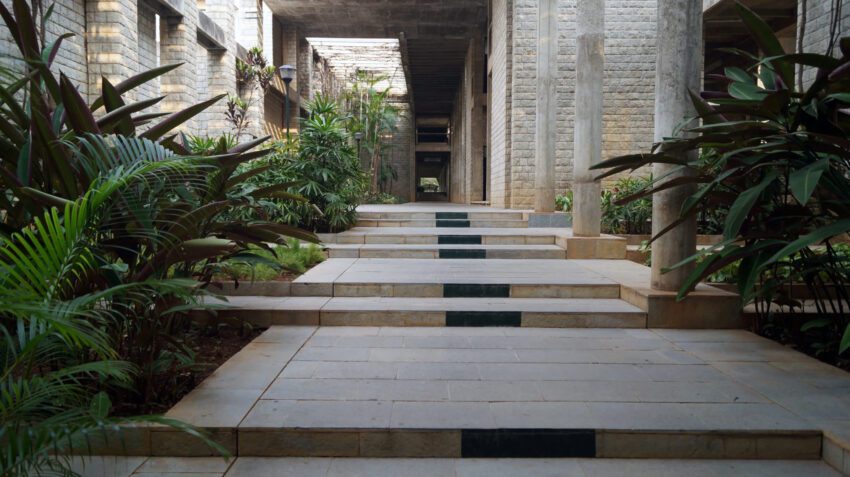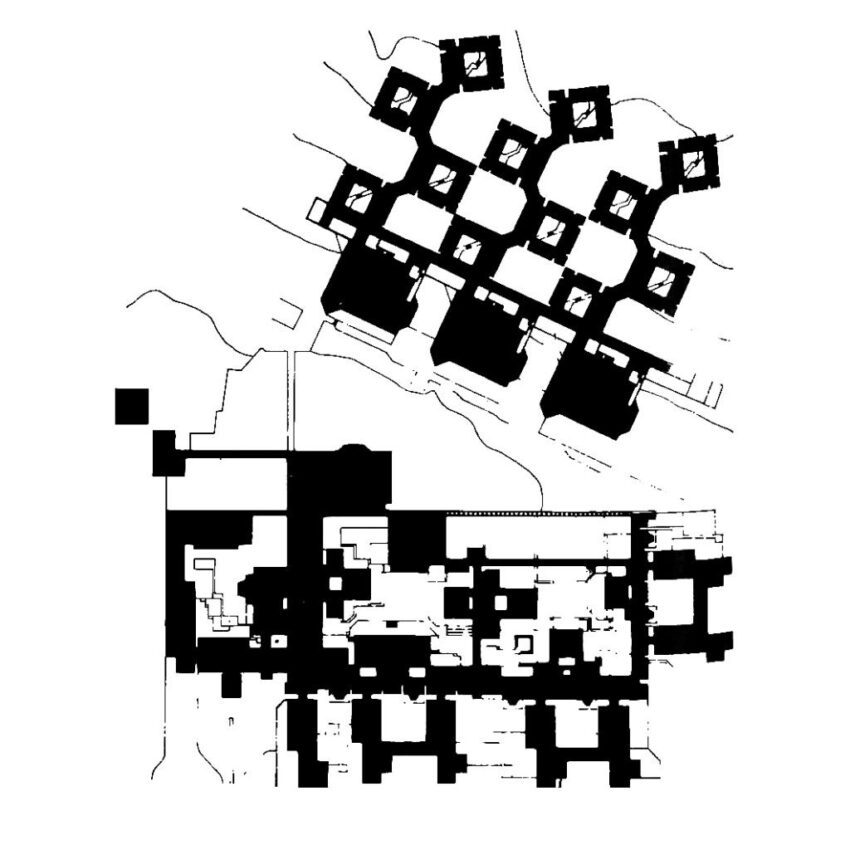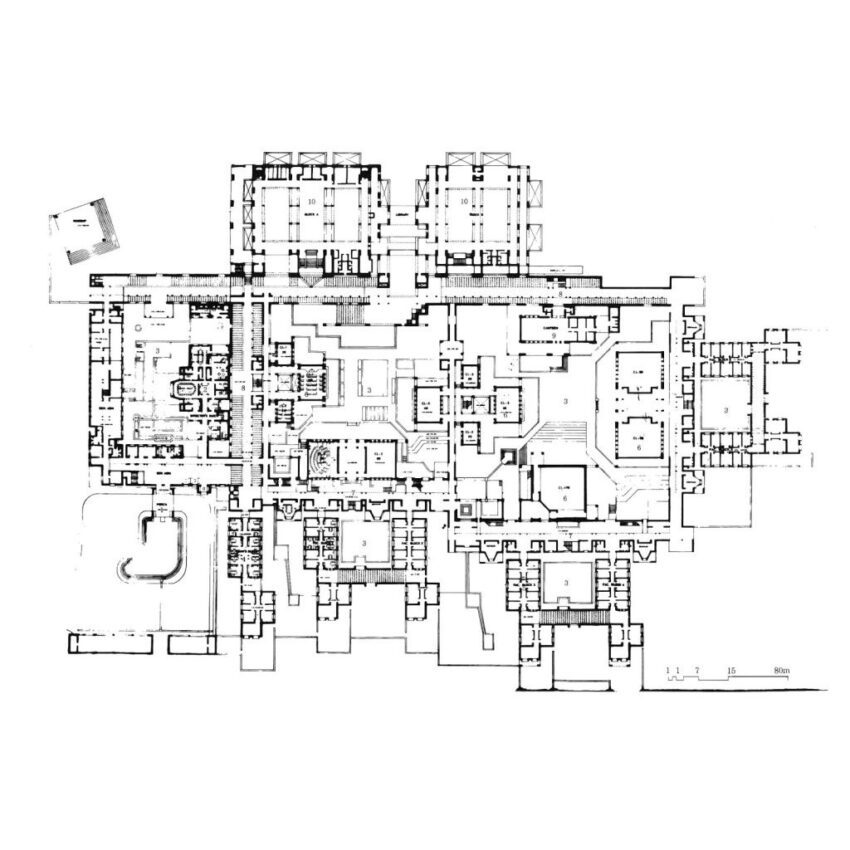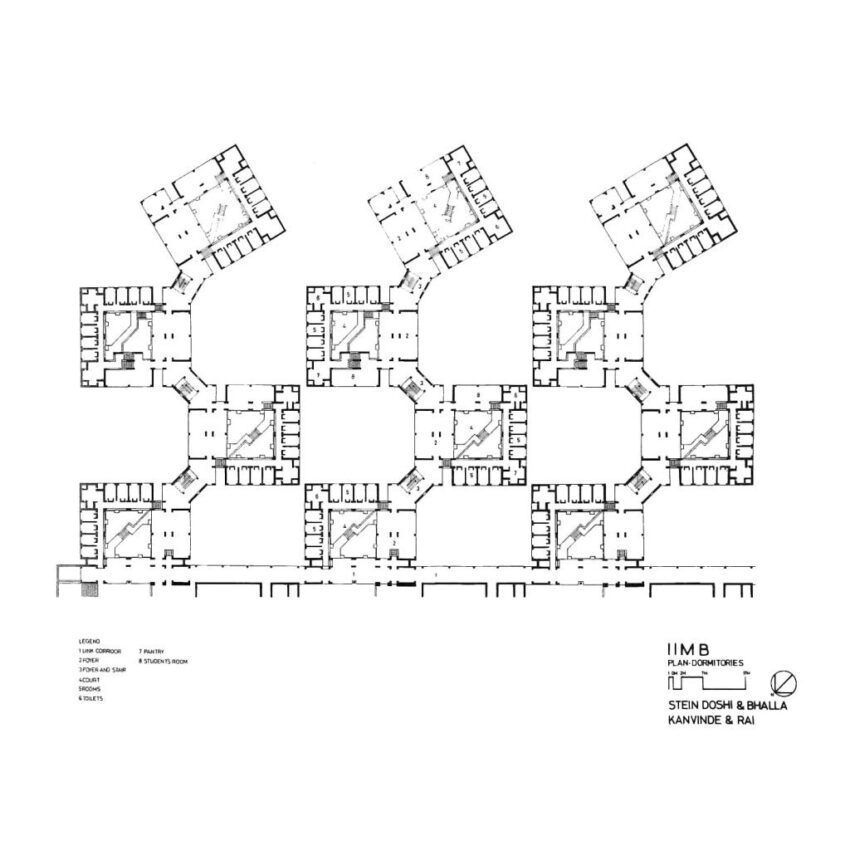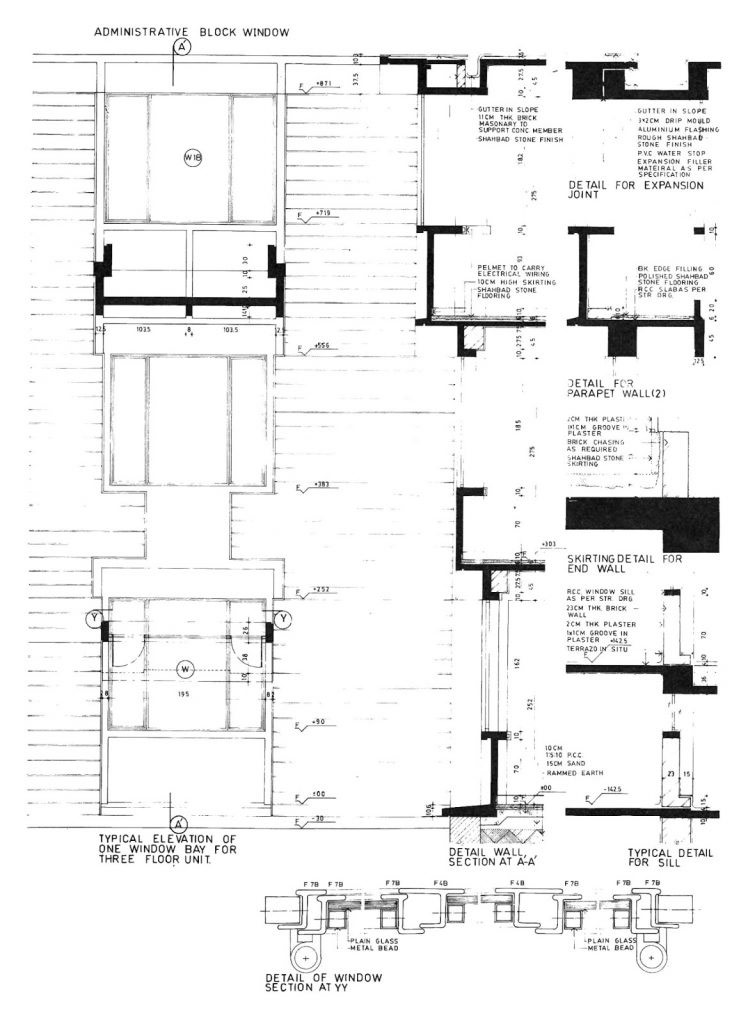The Indian Institute of Management Bangalore (IIMB), designed by B.V. Doshi, a Pritzker Prize-winning architect renowned for his contributions to Indian architecture, was completed in 1983. It is an educational institution and a landmark of modern architecture in South India, deeply rooted in the cultural and historical ethos of the country.
Indian Institute of Management Bangalore Technical Information
- Architects1: Balkrishna Vithaldas Doshi
- Location: Bangalore, Karnataka, India
- Topics: Granite in Architecture, Concrete Architecture
- Area: 54,000 m2 | 581,251 ft2
- Project Year: 1973-1983
- Photographs: © Ruturaj Parikh, See Caption details
Architecture is an extension of the body, and it is where the mind dwells.
– B.V. Doshi 2
Indian Institute of Management Bangalore Photographs
Fusing Heritage and Innovation: B.V. Doshi’s Design for IIM Bangalore
Doshi’s architectural philosophy is vividly reflected in the design of IIMB. Inspired by the historic city of Fatehpur Sikri and the Madurai temples, the campus is a harmonious blend of traditional Indian and modern architectural elements. The design ethos of IIMB was to create a space that transcends the physical boundaries of buildings, encouraging openness and fluidity. This vision was realized by seamlessly integrating indoor and outdoor spaces, facilitating a dialogue between nature and built form.
A Campus in Harmony with Nature
The 54,000 sq mt IIMB complex is built on a sprawling 100-acre campus, incorporating granite and concrete to mirror the robustness of Fatehpur Sikri’s courtyards. At the same time, the lush gardens reflect the verdant landscape of Bangalore. Over time, the campus has evolved into a green oasis recognized for its sustainability practices. Using local materials and passive cooling strategies exemplifies Doshi’s commitment to sustainable design principles.
Architectural Innovation and Collaboration
The design of IIMB is a collaborative effort that showcases the brilliance of Doshi along with the contributions of architects from Doshi Stein and Bhalla and the guidance of Achyut Kanvinde. The architecture is celebrated for its spatial synthesis, utility, and energy efficiency. By incorporating wide corridors, lavish spaces, and courtyards, the campus architecture redefined Indian architectural norms at a time when the country was on the cusp of embracing modernity.
Spaces That Encourage Interaction and Learning
To create an atmosphere where you don’t see divides and doors.
– B.V. Doshi
The architecture of IIMB fosters an environment of learning and interaction. Inspired by Fatehpur Sikri, the spatial arrangement promotes a sense of community among the students and faculty. The courtyards, corridors, and fenestrations are meticulously designed to facilitate natural light and ventilation, creating a conducive atmosphere for education and contemplation.
IIMB’s architecture reflects Doshi’s philosophy of creating inclusive spaces, encouraging creativity and interaction. The campus blends historical inspirations and modern functionality, making it a unique example of how architecture can bridge the past and the present.
Indian Institute of Management Bangalore Plans
Indian Institute of Management Bangalore Image Gallery

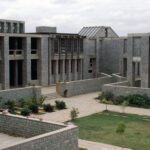

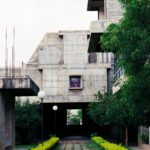

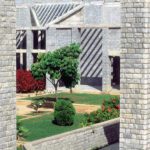



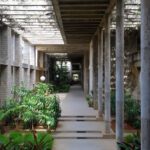


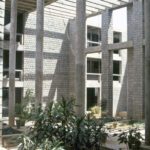
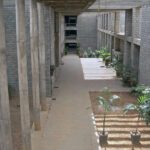

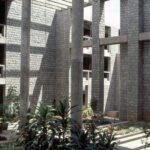

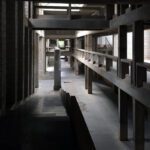
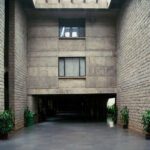

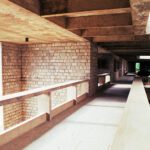



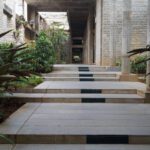
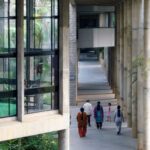



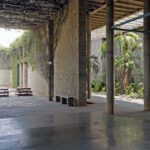


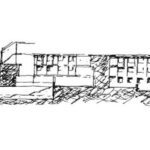
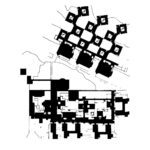

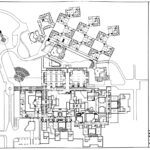


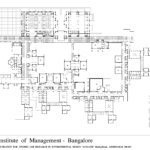

About B.V. Doshi
Balkrishna Vithaldas Doshi was born in Pune, India, on August 26, 1927. Doshi’s career spans over six decades, during which he has melded the principles of modernism with his homeland’s rich cultural and traditional narratives. A disciple of Le Corbusier and Louis Kahn, Doshi has been instrumental in shaping the architectural discourse in India and beyond. His contributions range from educational institutions and public buildings to residential complexes; each project imbued with a sensitivity to climate, context, and sustainability. In recognition of his profound impact on the architectural fraternity and society at large, Doshi was awarded the prestigious Pritzker Architecture Prize in 2018, becoming the first Indian to receive this honor. His work, characterized by a deep respect for humanity and the environment, inspires generations of architects worldwide.
Notes & Additional Credits
- Design Team: Balkrishna Vithaldas Doshi, Bhalla, and Achyut Kanvinde
- Balkrishna Doshi: An Architecture for India by William J.R. Curtis
- Modern Architecture in India: Post-Independence Perspective by Sarbjit Bahga, Surinder Bahga, and Yashinder Bahga
- Architecture and Independence: The Search for Identity – India 1880 to 1980 by Jon Lang, Madhavi Desai, and Miki Desai

